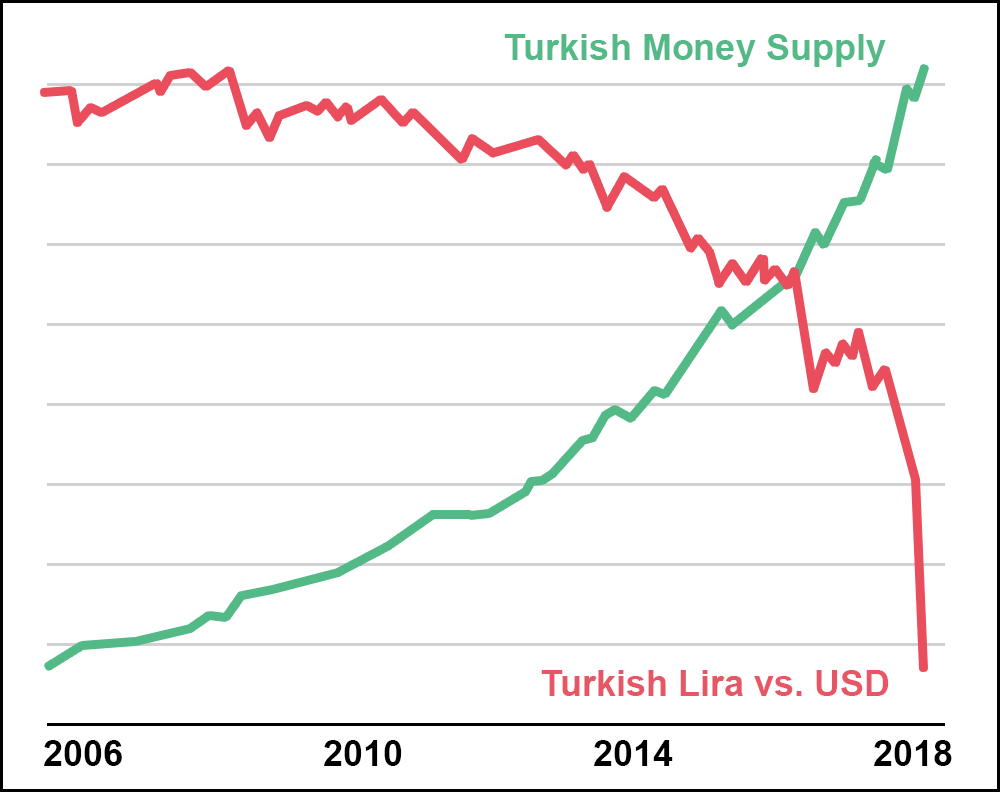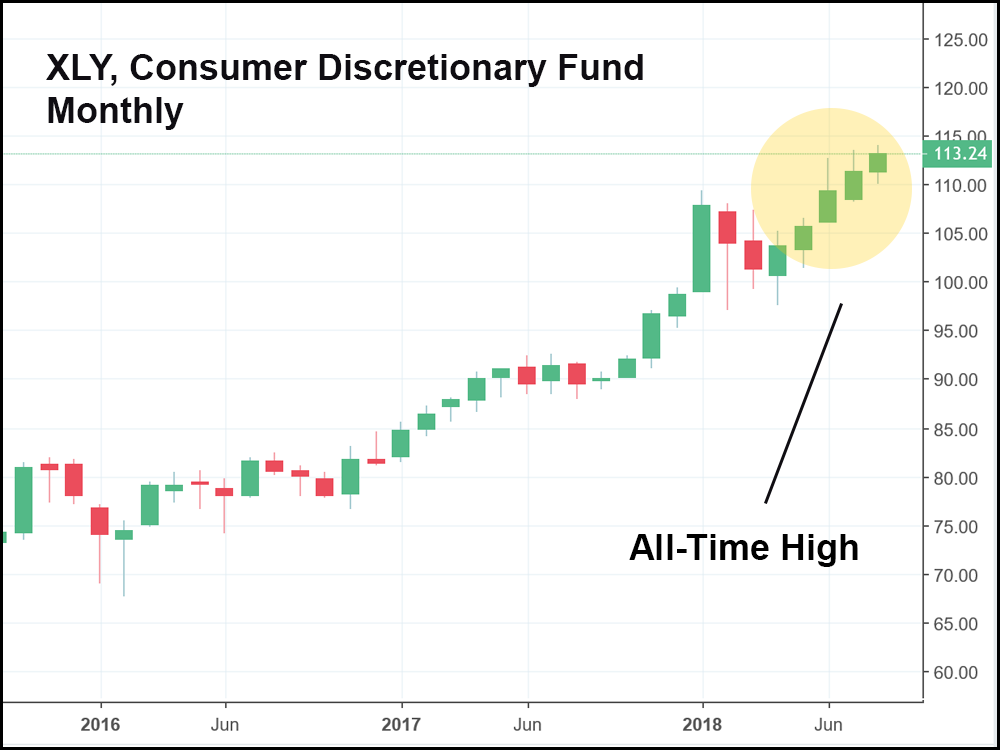Just when you thought a new all-time-high for the S&P was in sight, another crisis hits the newsstands and sends markets around the globe reeling. Thanks, Turkey!
By now you may have heard about the stunning crash of the Turkish Lira and the growing fears by emerging market FX traders that the event could spark a global selloff of risky currency assets. You also may have heard that a global foreign exchange selloff is actually happening. Emerging markets forex markets are getting slammed today as traders abandon these currencies for the safety of the U.S. Dollar.
But is this event — labeled a “black swan” by some — the harbinger of a years-long, soul-destroying bear market?
Perhaps – but in all likelihood, it’s nothing to worry about.
In fact, while everybody is wailing and gnashing their teeth at the forex markets, another sector is pointing toward newer highs across every major exchange in the U.S. – and that is what’s worth watching.
But before we dive in on what you should be keeping an eye on, let’s get you filled in on what has happened so far.
What’s Causing the Lira to Crash?
Bad fiscal policy. Simple as that.
The Turkish Lira has been dropping for some time now, ever since Recep Tayyip Erdogan became Prime Minister and later elected himself President-For-Life of Turkey with a few fraudulent elections (and lots of cash handouts to secure votes).
Mr. Erdogan has promoted a loose central bank policy, and has allowed his treasury to print oodles of Lira to fund his ambitious social and military programs.

This policy has continued unabated for years by Mr. Erdogan and his Justice and Development Party. As Turkish money supply has crept up, the Lira has continued to suffer.
And finally, after all this time, it has fallen off a cliff.
Under Erdogan, Turkey’s treasury department has held the view that inflation is a myth, even though the monetary supply has tripledin just seven years while interest rates have been dragged down to some of the lowest in the country’s history.
The pivotal event which caused the lira to plunge seems to have been President Trump’s steel tariffs. But instead of taking this threat seriously, Mr. Erdogan is doubling down on the rhetoric.
“U.S. has dollars,” said Mr. Erdogan. “We have GOD.”
Do those sound like the words of a leader, or a deranged lunatic?
Ultimately, though, it begs the following question:
Is Currency Contagion a “Black Swan” Event?
The Turkish Lira is just one currency to see a massive price correction in recent months. The Chinese Renminbi continues to plummet—largely on purpose, according to some experts. And over the last few days of trading, the entire emerging markets forex market is taking a nosedive, led by the Lira, the South African Rand (those pesky white farmers we’ve been hearing so much about), the Argentine Peso, and the Indian Rupee.
So far, it seems no continent has been spared the wrath of the Inflation Specter.
The problem isn’t so much any one particular currency, but the influence of inflationary spending and bad debt. The question is, have all these inflationary policies by central banks led us to this moment—the moment of reckoning? And if so, was it the Lira that caused the entire mess to explode in our face?
That would be the perfect example of a “black swan”, a term coined by Nassim Nicholas Taleb in his eponymous 2007 book on the subject. “Black Swans” describe a single, surprising event, which is so shocking that it undermines the foundations of what everyone assumed would be there forever.
A perfect example of a “Black Swan” would be when Archduke Franz Ferdinand was assassinated in Sarajevo on June 28th, 1914, setting off a series of events which led to World War I. That’s a “black swan”.
But is bad fiscal policy by the Turks really the next “black swan” that undermines the entire bullish structure in global stocks?
Probably not.
Sorry Bears. Foreign Exchange Traders Won’t Break This Bull Market
Bears are ready to tear their hair out at the prospect of this never-ending bull market going on another year or two or more. But that is exactly what could happen, despite growing concerns about central bank tightening and plunging foreign currencies caused by tariffs, trade wars, and bad debts.
All of this negativity has definitely weighed down stocks. And now that we’re inching ever closer to new highs, the market seems to be looking for any reason to go down. Nobody enjoys buying into assets at new highs in the longest running bull market ever. Nobody wants to martyr themselves on the last green wick of the last major impulse move up.
But the foundation of this bull market has not yet been breached. And for those that know where to look, there is lots of good news suggesting this bull market is fully intact…
Because…
The Consumer Discretionary Index Is More Important than Forex
I’m talking about the consumer discretionary index, a sector of the U.S. market which measures discretionary purchases by Americans on things like cars, entertainment, apparel, and other items, that aren’t exactly necessities of daily life.
During recessions, this sector gets hit hard. People are too busy scrimping and saving to go on shopping sprees. But in a bull market, this sector does very well. And as a matter of fact, the XLY — the most popular consumer discretionary index ETF — just hit a new all-time high a few days ago.

This is significant, because it shows that fears over inflated currencies and tariffs abroad is not having an effect on how much Americans are spending. In fact, we’re spending more than ever.
That’s very bullish news. And it’s why you shouldn’t be concerned about the Turkish Lira…
Unless of course, you’re a Turk.









